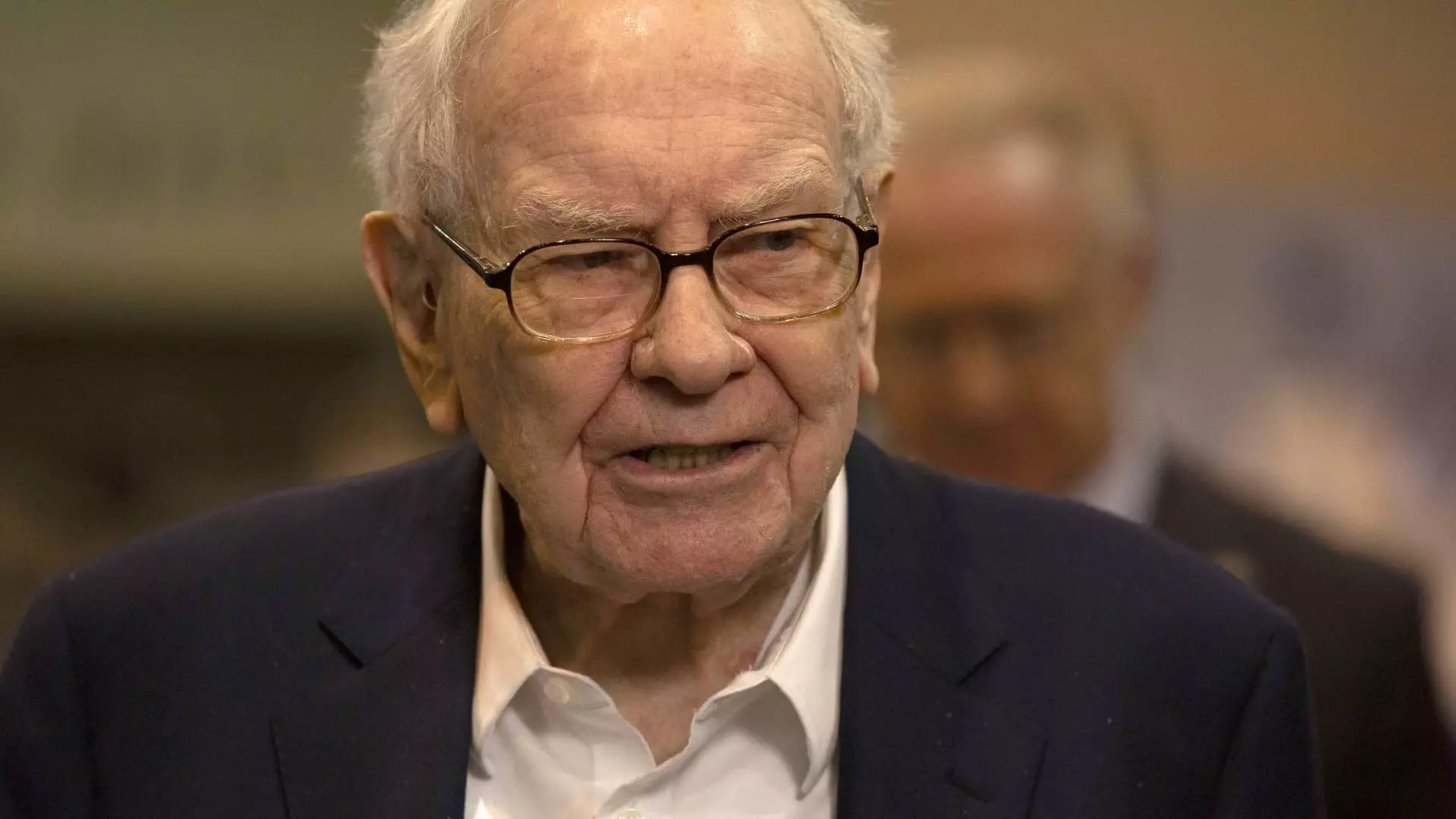Berkshire Hathaway, led by the legendary investor Warren Buffett, has become a remarkable case study in strategic financial management, particularly highlighted in its recent performance in the third quarter. The conglomerate’s cash reserves surged to an unprecedented $325.2 billion, a significant jump from the $276.9 billion recorded in the second quarter. This impressive cash pile reflects not just the company’s financial health, but also Buffett’s cautious approach amidst a tumultuous stock market.
Buffett, known as the “Oracle of Omaha,” is not one to follow market trends blindly. Instead, his recent actions reveal a deliberate strategy of liquidating significant portions of his stake in some of Berkshire’s larger investments, with Apple and Bank of America particularly notable. The reduction of approximately a quarter of Berkshire’s extensive Apple holdings marks the fourth consecutive quarter in which Buffett has opted to divest his equity stakes. This pattern suggests a calculated move to reposition the conglomerate’s investments in anticipation of potentially volatile market conditions.
Berkshire’s stock-selling spree in the third quarter culminated in the company liquidating a remarkable $36.1 billion worth of stock. This decision to sell rather than repurchase shares has raised eyebrows among investors, especially since repurchase activity had previously been a significant aspect of Berkshire’s strategy. Earlier in the year, buybacks were already declining, culminating in only $345 million worth of repurchased shares in the second quarter — a stark contrast to the $2 billion spent on buybacks in each of the prior two quarters.
The rationale behind this restrained repurchase strategy is fundamentally tied to Buffett’s view of intrinsic value. The company has reiterated its commitment to only repurchasing shares when the price falls below what Buffett conservatively assesses as the shares’ intrinsic worth. In light of Berkshire Hathaway’s recent stock performance, which has outpaced the broader market indices, it seems Buffett is exercising significant caution, possibly indicating his anticipation of a market correction.
In the third quarter, Berkshire’s operating earnings amounted to $10.1 billion, although this reflected a 6% decline from the previous year, attributed mainly to underwhelming insurance underwriting performance. Crucially, this figure fell short of analysts’ expectations, highlighting potential underlying weaknesses in certain divisions of the conglomerate.
Despite these minor setbacks in earnings, Berkshire Hathaway’s stock has garnered attention for its impressive year-to-date growth of 25%, which stands favorably against the S&P 500’s 20.1% return. This trend was pivotal as Berkshire crossed the trillion-dollar market cap milestone, marking a significant achievement in its financial trajectory.
Buffett’s cautious yet calculated approach emerges against a backdrop of a fluctuating economic landscape characterized by rising interest rates and political uncertainty. The recent increase in the yield of the 10-year Treasury above 4% has raised concerns among investors regarding future financial stability. Inflationary pressures coupled with a growing fiscal deficit could have overarching implications for market dynamics and investment strategies moving forward.
Noteworthy investment figures, including Paul Tudor Jones, have expressed skepticism over the unsustainable nature of the fiscal deficit. This concern is compounded by the political climate as the presidential candidates face off without clear plans to address spending cuts necessary for fiscal health. Buffett’s own sentiment seems to echo these broader economic anxieties, as he has suggested that ongoing portfolio adjustments may be prudent in anticipation of potential tax increases on capital gains aimed at rectifying the deficit.
Berkshire Hathaway’s recent financial maneuvers led by Warren Buffett underscore a cautious but aware response to both industry trends and macroeconomic factors. The deliberate accumulation of cash reserves against the backdrop of strategic portfolio adjustments reflects a profound understanding of market cycles. As the company navigates through a complex financial landscape, Buffett’s actions serve as a reminder of the importance of patience, prudence, and strategic foresight in investing. Investors and market watchers alike should remain vigilant as they anticipate Berkshire Hathaway’s next moves, which could have significant implications for the broader market in the months to come.

